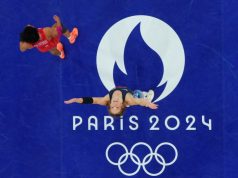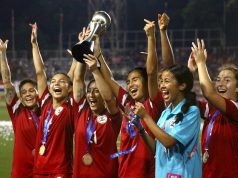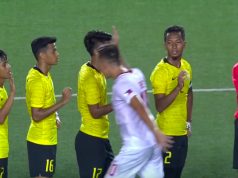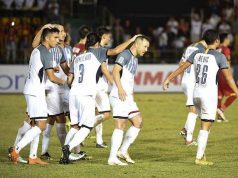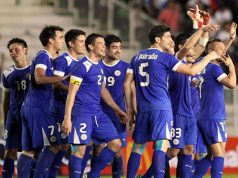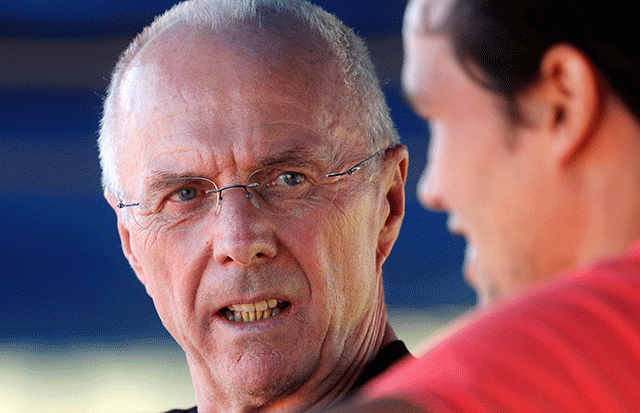
MANILA—When Sven-Goran Eriksson arrived to take up his new role as head coach of the Philippines at the weekend, there were no TV cameras to greet him, nor were there any fans clamoring for photos and autographs.
The Swede’s latest national team job is already a stark contrast to any of his others, transporting him to a country passionate about basketball but with little knowledge of soccer, despite the sport’s fervent following throughout East Asia.
But after spending five years as England manager, hounded by the media and seeing his private life splashed across front pages, the soft-spoken 70-year-old is enjoying the anonymity.
“Nobody recognized me, it’s very, very good,” Eriksson told Reuters before taking his third training session with the Philippines national team.
“You see, it’s not a football country. If I was in England or Italy or somewhere, people would know who I am, but that’s nice, it’s very good.”
Eriksson takes charge of the “Azkals” (street dogs) just a week ahead of a hectic schedule of back-to-back tournaments, starting with the month-long Suzuki Cup, the Southeast Asian championship, and the more prestigious Asian Cup in January.
He hopes to capitalize on a mood of quiet excitement in Filipino soccer, stirred by a maiden Asian Cup appearance and national goalkeeper Neil Etheridge becoming the first Southeast Asian to appear in the English Premier League with Cardiff City.
Eriksson recently turned down jobs with Cameroon, which he said involved too many people, and Iraq, which had “big ambitions” and expected an Asian Cup win.
After former England defender Terry Butcher quit as coach in August without overseeing a single match, Eriksson made the move to the Philippines, where he said the game’s relative obscurity was part of the appeal.
“It’s something new even for me. It’s a country with more than 100 million people and football is not important, and I want to try to make it important,” he said.
“I thought, why not try to do something very good with the Philippines? They’re very low in the FIFA rankings list (116th), so let’s try to get that up.
“I know that basketball is the biggest sport here, but let’s try change that and why not? If we get some success, it could grow very quickly.”
Local club
Success might come easier than domestic attention, however.
Eriksson’s first media appearance only made the inside pages of Philippine newspapers, behind American college basketball, a police chief presiding over a shooting contest, and a story about a gymnast worried about not getting a visa.
Cable TV coverage of the recent World Cup came with occasional slapstick-style halftime commercials explaining soccer jargon, while scheduled coverage of some deciding group matches were replaced by local volleyball games.
Life has been moving at a slower pace for Eriksson and the Philippine job will bring back what he says is much-needed ‘touchline adrenaline’.
Since 2017, he has been back in his home village of Torsby, helping his local team at matches that drew less than 200 spectators.
“That’s what I’ve been doing, normal life,” said Eriksson, who has coached Roma, Lazio and Manchester City, as well as Mexico, England and Ivory Coast.
“After a while I miss football, I miss being involved. I was involved in a local team, that’s great, and it’s sort of pressure to try to improve, but it’s not the same as it is to be coaching a national team, so I’m happy to be back.”
His new team includes players born in Europe, with some of them former juniors at clubs such as Chelsea, something he sees as a big positive.
Eriksson’s contract covers the Suzuki Cup, where the Philippines are grouped with Indonesia, Singapore, Thailand and East Timor, and the Asian Cup in the United Arab Emirates, where they face South Korea, China and Kyrgyzstan.
He is not sure what will come after that, but says it will not be retirement.
“Life is good, I have a certain age, maybe I shouldn’t work anymore,” he added. “But I like to work and as long as you want to be on the pitch, it’s good.” —Editing by John O’brien




